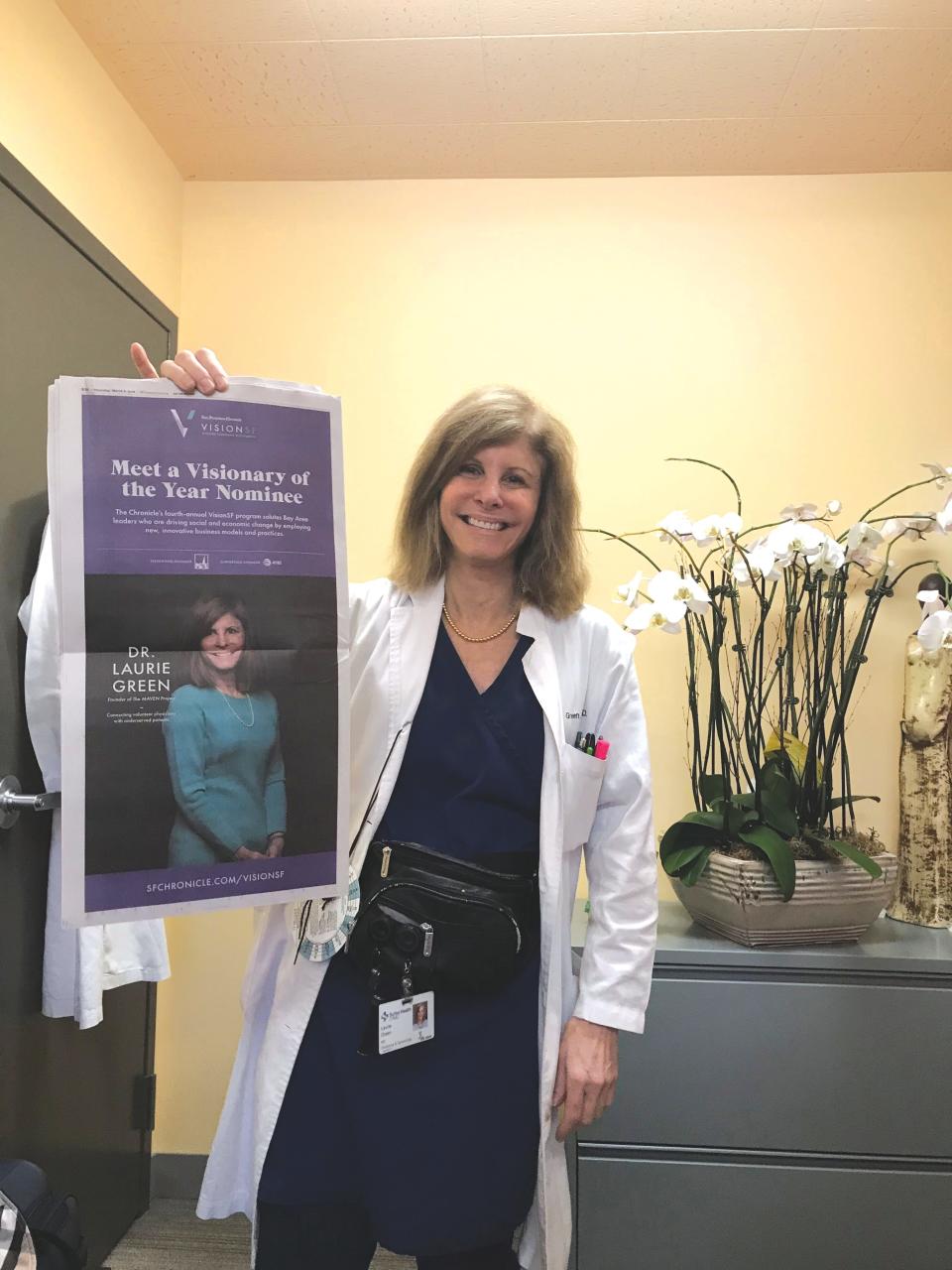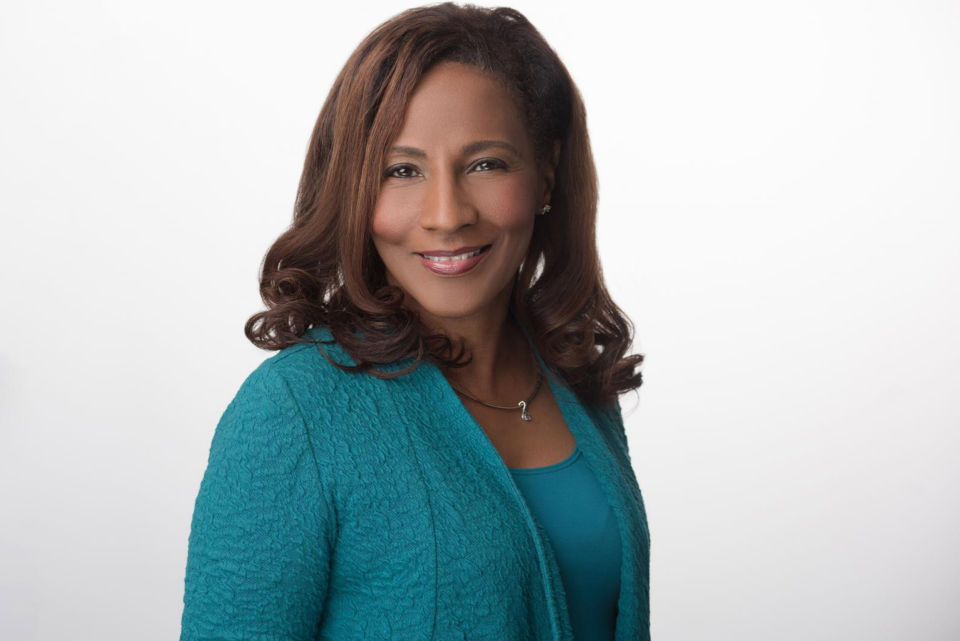Project provides specialty medical care to underserved communities

On a recent warm and humid Miami morning, Dr. Lisa Gwynn, a board-certified pediatrician and medical director at the University of Miami Health System’s Pediatric Mobile Clinic, prepares to greet her first patient of the day. A 10-year-old boy smiles at Gwynn shyly as his mother describes how he has experienced severe fatigue and excessive thirst for the past several months.
Based on his symptoms, Gwynn suspects the boy might be diabetic. When a blood test confirms the diagnosis, she arranges a telehealth consultation with an endocrinologist to formulate a treatment plan. Using an app, Gwynn connects within minutes to Dr. Debra Cohen, a retired pediatric endocrinologist in Santa Clara, Calif., and a volunteer with the MAVEN (Medical Alumni Volunteer Expert Network) Project.
Cohen is one of more than 140 retired and semi-retired physicians in 53 specialties who volunteer with the MAVEN Project, a national nonprofit that supports front-line providers in delivering comprehensive care to patients at health centers and community clinics nationwide. From her home in California, Cohen can connect with Gwynn and other community clinic providers across the country through live video and phone consultations. Community clinic staff can also email MAVEN volunteer physicians with follow-up questions or advice on a course of treatment.
While the COVID-19 pandemic brought telemedicine to the forefront of health care, the MAVEN Project has been successfully utilizing telehealth technology for several years. Launched in 2014 by San Francisco obstetrician-gynecologist Dr. Laurie Green, MAVEN aims to provide retired physicians with a way to continue using their medical expertise in meaningful ways, while also helping community health clinics connect with medical specialists. Funding for MAVEN comes through donations and community grants. By working with primary care providers at the clinics, rather than providing direct-to-patient care, MAVEN volunteers aren’t restricted by state licensure requirements.
“I describe MAVEN as Match.com meets the Peace Corps,” Green says. “Our project provides an opportunity for retired physicians to remain active and help others by volunteering a minimum of four hours each month, while also giving community health clinics timely access to specialty services.”

MAVEN’s volunteer physicians provide resources, peer support and medical consultations to more than 100 community clinics in 13 states, with plans to expand by 2023. To date, MAVEN volunteers have served more than 765,000 patients seen at rural and urban community health clinics.
“These clinics often have limited resources and serve as a safety net, delivering a broad range of services to patients who may be low-income, uninsured or who live below the poverty line,” Green says. “Many of these clinics are understaffed and overwhelmed by patients that have acute and chronic health conditions that require specialty care which they don’t offer.”
Chronic Diseases on the Rise
According to the Partnership to Fight Chronic Disease, 133 million Americans, or 45 percent of the population, have at least one chronic disease. At the same time, the Association of American Medical Colleges predicts a shortfall of up to 139,000 physician specialists by 2033.

Cohen says she has seen prediabetes and diabetes cases among children and teens increasing over the past decade. She adds that she frequently receives requests for telehealth consultations from community clinic providers who have questions about the best medications and lifestyle changes for children and teens diagnosed with Type 2 diabetes. “While the cases aren’t necessarily complicated, they’re medical conditions that many providers in a community clinic don’t commonly see,” Cohen says.
Maria Heidenreich, a nurse practitioner and medical director at the Community Health Center of Franklin County in Greenfield, Mass., says she has been using MAVEN’s clinician-to-clinician telehealth consultations for several years, and appreciates the ability to connect with a neurologist, cardiologist or other specialist, without delay.
“I might have a case where there are abnormalities on a patient’s blood test, and I want to talk the results through with a hematologist who has more experienced eyes,” Heidenreich says. “Partnering with MAVEN allows us immediate access to specialists and ensures that our patients receive an expert referral consult.”
And given the lack of specialists available, Heidenreich says many patients would have to wait several months to be seen and take a day off work to drive several hours to the appointment.
Empowering Community Clinic Staff
In addition to telehealth consultations, Green says MAVEN volunteers also work to mentor and educate community clinic staff through webinars offered via Zoom videoconferencing.
“Our educational programs, led by physician volunteers, focus on clinical care and are offered in a group setting, with a chance for providers to ask questions,” Green says. “Many of the sessions offer Continued Medical Education credit to participants and cover topics such as weekly COVID-19 updates, information on what an atypical case of COVID-19 might look like and how to diagnose and treat osteoarthritis.”
Dr. Susan Leggett-Johnson, a retired internal medicine physician from Washington, D.C., has presented several educational sessions to staff at the community clinics that partner with MAVEN.

“I recently offered a webinar to new nurse practitioners on how to build trust and increase patient satisfaction with patients,” Leggett-Johnson says. “Another popular webinar was on the Family and Medical Leave Act, including eligibility, what medical conditions qualify under the act and other questions that commonly arise.”
Leggett-Johnson, who began volunteering with MAVEN last year, says the project is providing a much-needed service that addresses inequalities in health care.
“Through my work, I’ve seen how important it is for all patients to have access to medical care, regardless of their economic status, health conditions or employment status,” she says. “Everyone deserves the right to quality health care, and through telehealth, the MAVEN Project is making access to specialists easier.”

This article originally appeared on USA TODAY: Retired doctors are donating their services to help remote communities

 Yahoo Movies
Yahoo Movies 